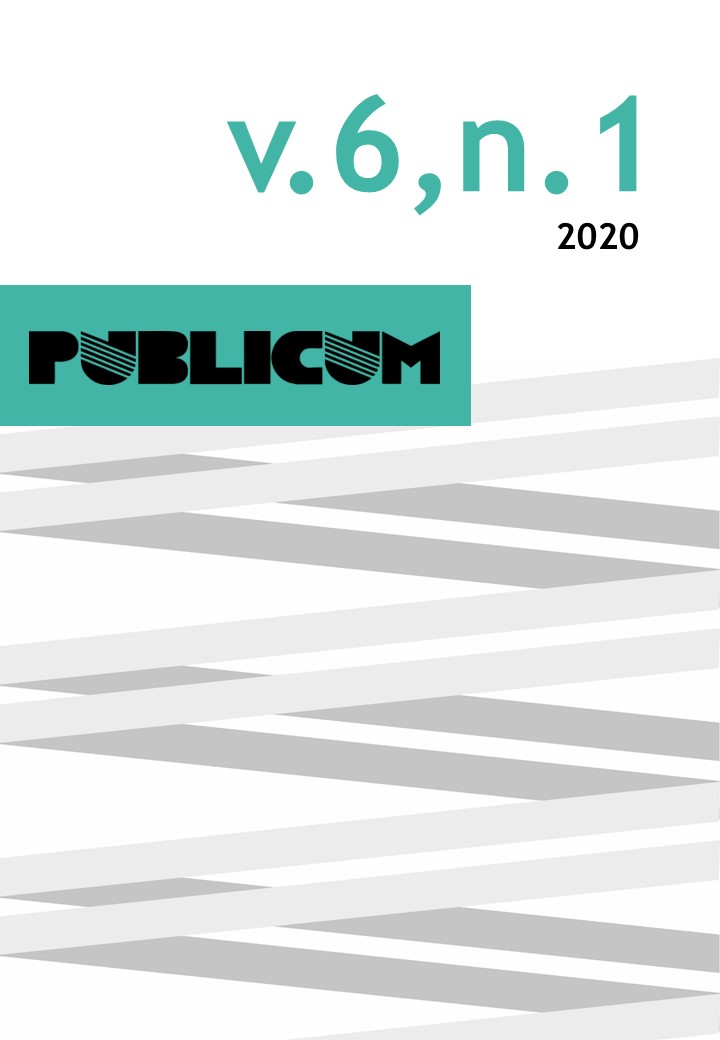Audiências de Custódia como Política Pública para a Redução do Encarceramento no Rio de Janeiro
DOI:
https://doi.org/10.12957/publicum.2020.56183Keywords:
Audiência de Custódia, Presos Provisórios, Superencarceramento, Direitos Humanos, Estado de Coisas InconstitucionalAbstract
Em 2015, o Conselho Nacional de Justiça (CNJ) lançou o projeto “Audiência de Custódia”, que almejava, como política pública, reduzir o número de presos provisórios no País. O Brasil já tinha quase 700 mil pessoas encarceradas, dentre as quais 40% ainda não tinham sido condenadas. O presente artigo analisou os resultados dos primeiros anos de implementação das audiências de custódia no Estado do Rio de Janeiro, entre 2015 e 2019. A análise da experiência fluminense, apesar de não abranger a diversidade das dificuldades enfrentadas pelo Projeto do CNJ nas várias regiões do País, mostrou que as audiências de custódia têm o potencial efeito de desacelerar o incremento da população prisional. Por outro lado, a pesquisa revelou que o comportamento dos juízes, imersos numa cultura de encarceramento, se apresenta como um importante obstáculo que reduz a efetividade da política pública. Mas, quando aplicadas medidas como programas de capacitação, exigência de experiência prévia na área criminal e escolha dos magistrados a partir de editais de inscrição com critérios objetivos, os dados indicaram maiores índices de concessão de liberdade nas audiências de custódia. Ao final, conclui-se que tais medidas tornaram as audiências de custódia mais efetivas para fins de redução da curva do encarceramento no Estado do Rio de Janeiro.
Downloads
Published
How to Cite
Issue
Section
License
The author(s) of the paper declare(s) to know and agree to the following rules:
1) The author(s) undertook the work presented to the journal, being entirely responsible for the ideas and concepts therein transmitted, which do not necessarily correspond to the point of view of Publicum’s Editors.
2) The ethical principles alluded to in the evaluation policy of the journal [RDN1] were met in the conduction of the work presented to submission.
3) The author(s) assume(s) authorship and responsibility for their work, declaring that it does not infringe any third party intellectual property rights.
4) The author(s) take(s) full responsibility for moral or patrimonial damages that the distribution of the work may generate to third parties.
5) The author(s) grant(s) the journal the rights to reproduce, edit and first publish the paper in any media – in particular in digital form – in an electronic archive on the Internet.
6) The author(s) confer(s) the right to the editors to modify the text submitted, without prejudice of its contents, when necessary to standardize the presentation of the works and to meet the norms of the journals’ own edition.
7) The author(s) agree(s) to the final form of the paper approved by the journal.
8) The author(s) authorize(s) the disclosure of the paper in the channels of communication of the Faculty of Law of UERJ.
9) The author(s) agree(s) with the reproduction of short extracts from the paper in other UERJ publications.
10) The author(s) recognize(s) that, through the abovementioned assignment and authorizations, he/she/they will not receive payment under any modality, meaning these will have the nature of scientific collaboration.
11) The author(s) is(are) aware that publication of the work may be refused if it is not considered appropriate, for any reason, whatsoever, and such refusal does not create responsibility and/or burdens of any kind to the journal or UERJ.
[RDN1]Ver COPE.

Publicum está licenciado com uma Licença Creative Commons Atribuição-NãoComercial 4.0 Internacional.

